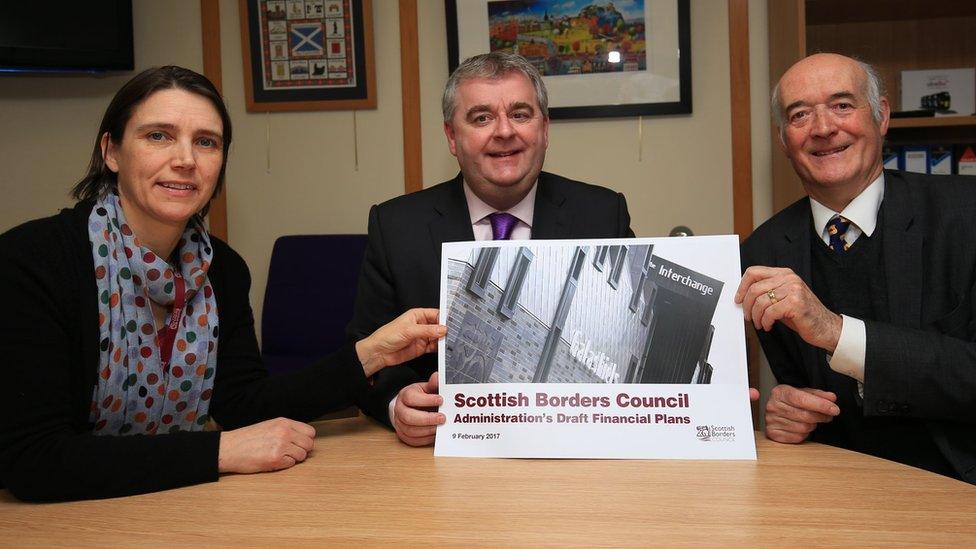Scottish Borders Council outlines key spending goals
- Published

The council's budget will be agreed at a meeting on 9 February
Scottish Borders Council's administration has outlined its spending plans ahead of a budget-setting meeting later this month.
Key areas include investment in roads, bridges, schools, flood protection and economic development.
However, up to 123 posts could be lost as part of the plans.
The council said that the final figure was "likely to be far less" and was from a workforce of approximately 4,500.
Plans were already unveiled last year to increase council tax by 3% in the financial year ahead.
The latest budget plans - to be agreed on 9 February - include a five-year revenue plan of £1.3bn and a 10-year capital plan of £321m.
Among the key capital investments are:
£14.2m additional funding for essential works to roads and key bridges
£3.2m extra towards the £38m Hawick flood protection scheme
£6.2m additional funding for energy efficiency works
£7.5m extra investment in works highlighted by its school estate review
Council leader David Parker said: "The budget we are putting forward on 9 February reflects our ongoing commitment to protect frontline services, and deliver significant investment for the Scottish Borders.
"This includes maintaining teacher numbers in our schools for the next year, continuing our ambitious plans to attract people and businesses to locate here, modernising the way we work, and a capital programme which will benefit the whole of the region.
"Like other local authorities, we are facing financial pressures as a result of decreasing public funding and increased demand on our services.
"However, thanks to our sound transformational and financial plans over many years, we are in a much better position than we might have been given the economic climate."
'Significant investment'
The council said it had delivered savings of £26.7m since 2013 and aimed to deliver a further £9.5m in 2017/18.
It said it would continue with its corporate transformation programme to deliver a "modernised and more efficient" council.
It said an impact on staffing levels was "inevitable" however that would be achieved by managing vacancies, natural turnover and offering redeployment as well as early retirement and voluntary severance.
Depute leader John Mitchell said: "Everyone is well aware that these are particularly difficult financial times.
"As a result, we continue to strive to become more streamlined, efficient and do things differently to allow quality services to be delivered to the public.
"Once again, we are putting forward budget proposals which set out significant investment aligned to our priorities, in addition to areas where we can work more efficiently and make significant savings through continuing to modernise the organisation and our services."
- Published13 December 2016
